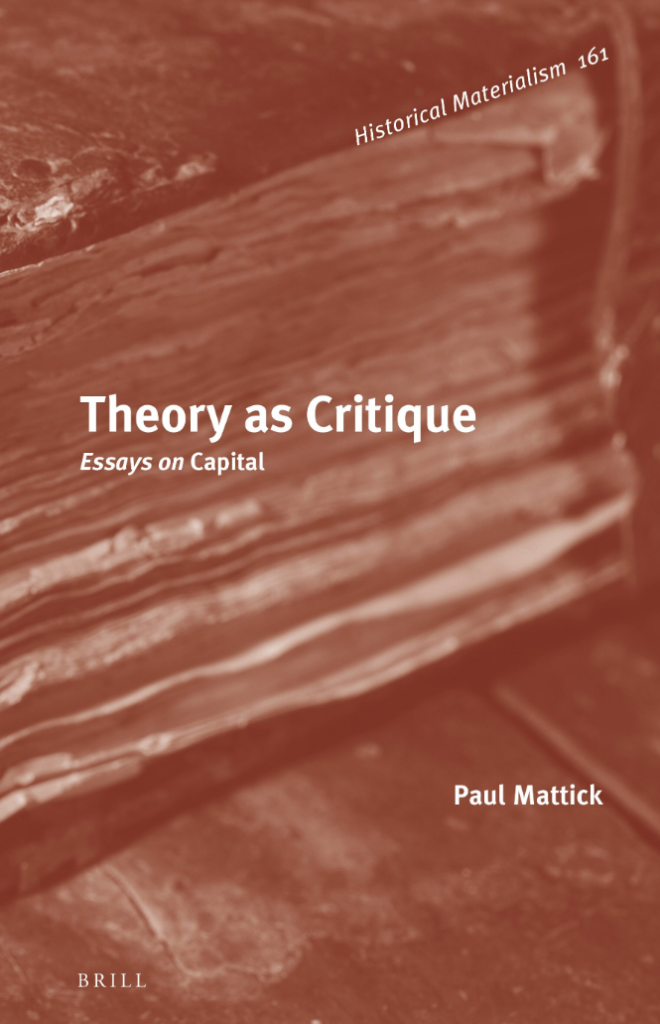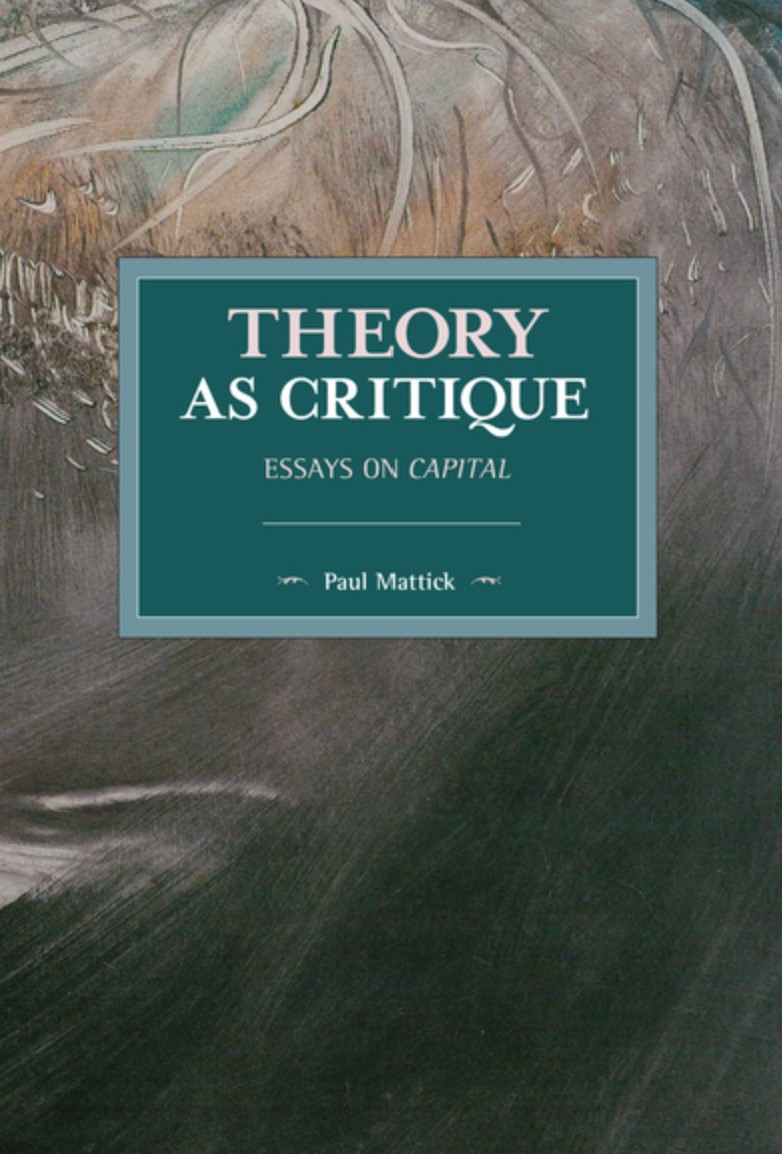Paul Mattick
Biographical Note
Readership
Anyone interested in Marx’s Capital as a theory of contemporary society, particularly graduate students in politics, sociology, and economics, but also general readers interested in socialist politics.
Table of Contents
Acknowledgements
1 Introduction
2 Marx’s Abstraction
Science
Idealisation
Explanation
3 Questions of Method
Marx’s Abandonment of Philosophy
Logic and Abstraction
Marx’s Dialectic
4 Theory as Critique
Political Economy as Text and Discourse
Representation and Reality
The Starting Point
The Argument in Capital
5 Labour as Activity and as Representation
Value as Representation
Abstract Labour and Value
Abstraction in Practice
The Reduction of Skilled Labour
The Causal Reality of Value
6 Value and Price: Marx’s Resolution of a Ricardian Conundrum
Labour and Value
Value and Price
7 Ricardo Redux
After Sraffa
Between the Devil and the Deep Blue Sea
8 Economic Form and Social Reproduction
Capital
Circulation and Reproduction
9 Class and Capital
Economic Appearances and Social Reality
Economic Class and Social Structure
Class Struggle and Revolution
10 Trend and Cycle
Theoretical Issues
Breakdown
11 Value Theory and Economic Events
Categories and Data
Prosperity as Depression
Bibliography
Index


